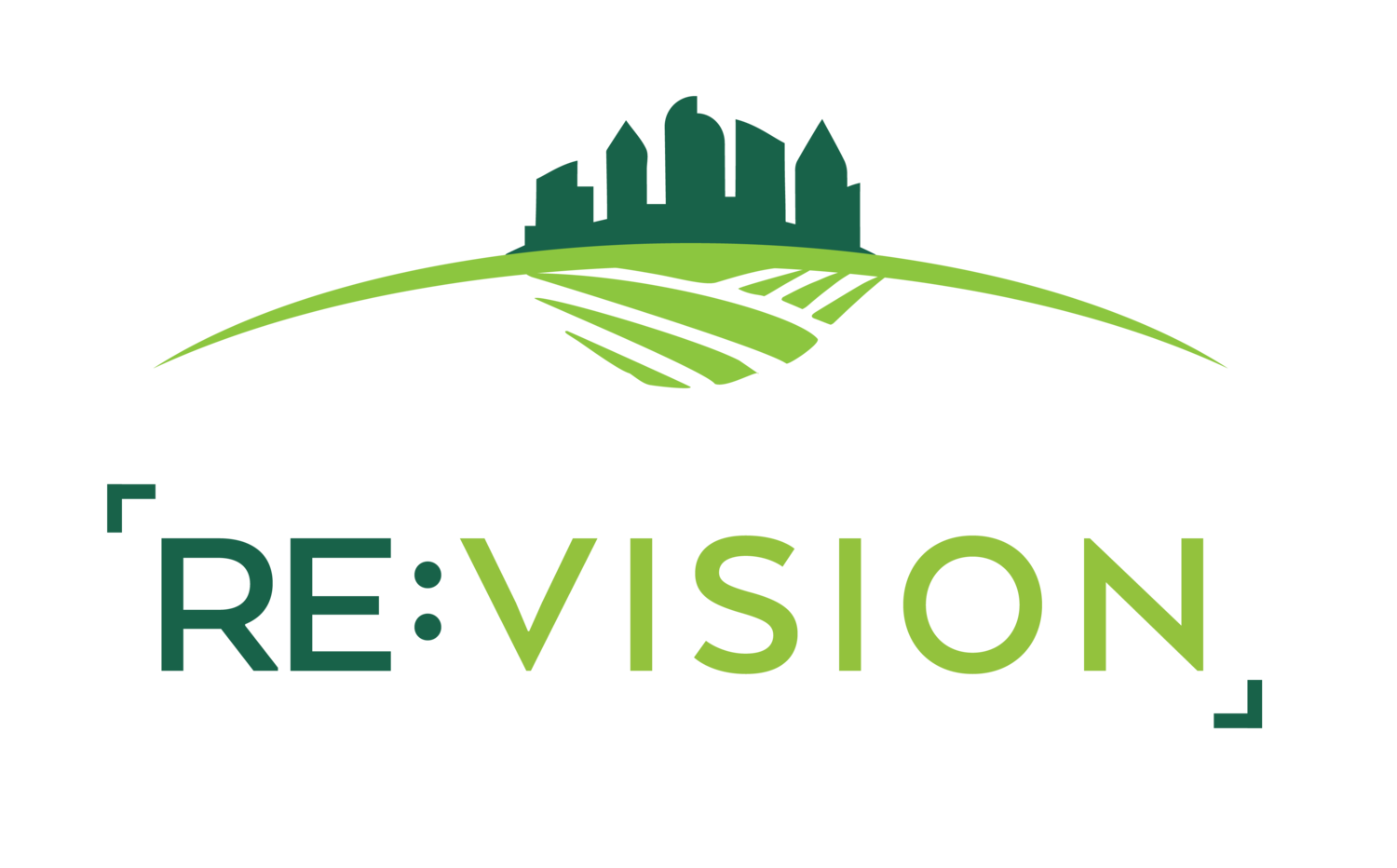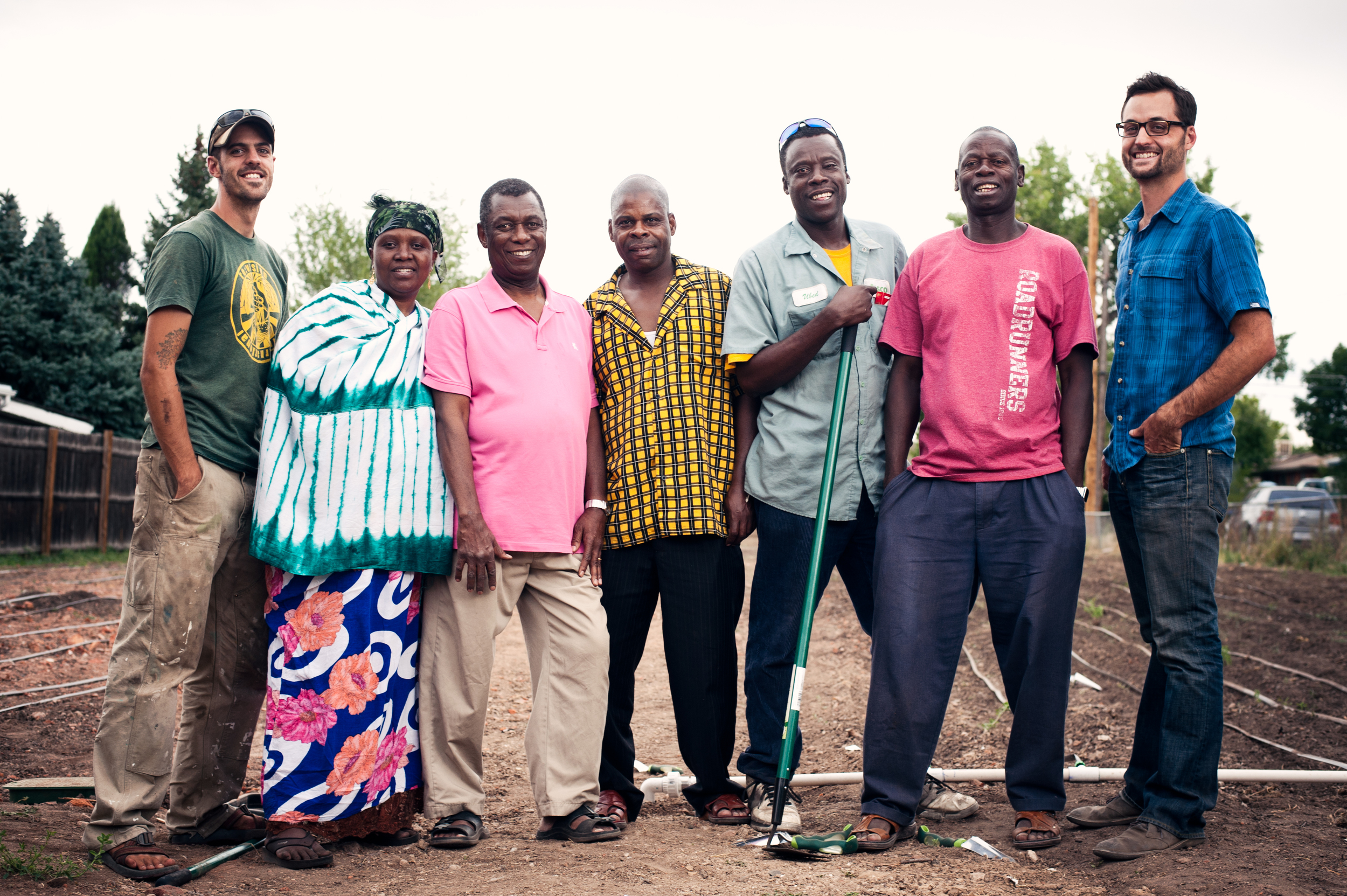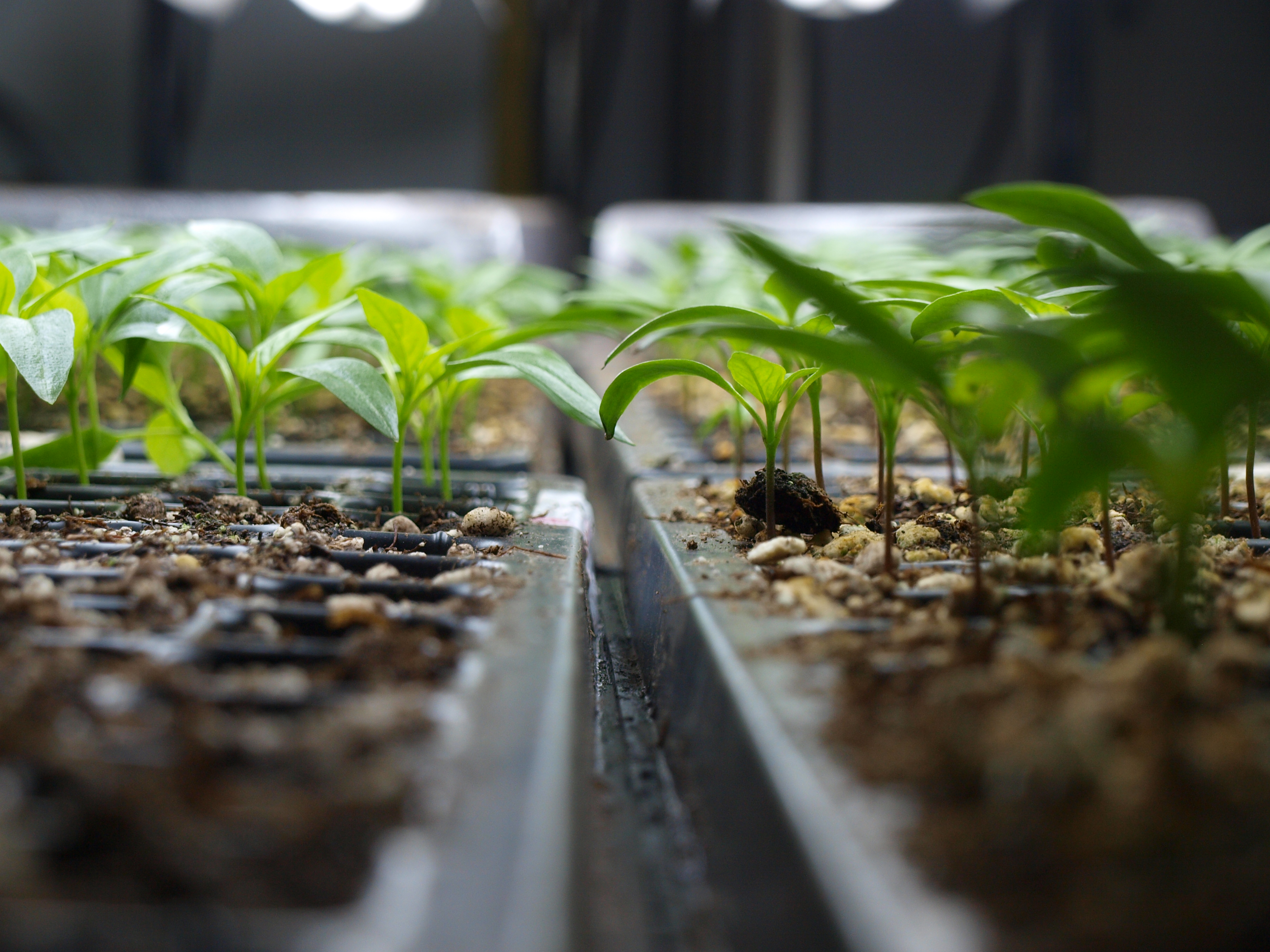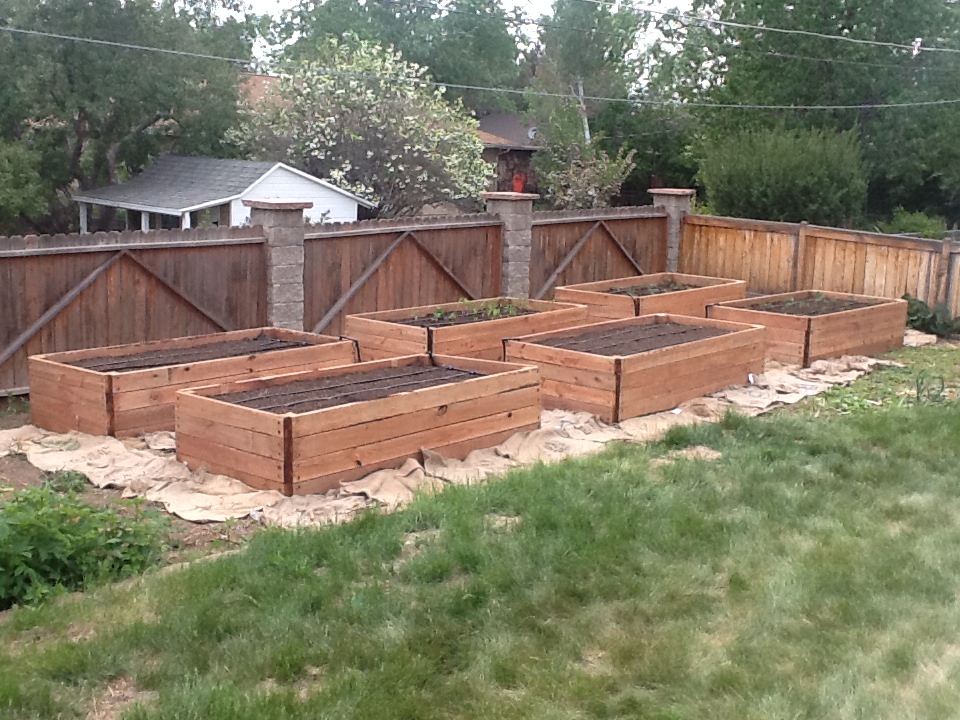
Re:Write
STORIES FROM THE FIELD, PROMOTORA RECIPES, AND CO-OP DEVELOPMENT LESSONS (PLUS SOME POLITICS AND HUMOR, TOO)
From Your Garden to Your Neighbor's Plate?
Home-based and community gardening is on the rise in Denver. As many gardeners know from experience, a summer's bounty can overwhelm the home kitchen. For those that would like to cultivate a hyper-local food economy by selling their bounty to their neighbors - which is currently illegal - change could be on the way.
Urban Ag in Denver: Zoning Codes
Are you a gardener in Denver? Did you know that it is currently illegal to sell your produce directly to consumers from your home or community garden in Denver? While Denver allows certain professions to sell products and services out of the home, fruits, vegetables and value-added items are not included within the law. At Revision, we would like to see change in the current policy that would allow urban gardeners and farmers to sell their produce on-site by allowing urban production to be classified as a Home Occupation. Other cities in the U.S., such as Kansas City, Cleveland, San Francisco, Philadelphia, Seattle and Portland have already implemented such changes, and they have greatly increased the access to organic produce for their residents. In order to continue on our mission towards sustainability and increased food security, it would be wise to implement this type of policy change within Denver. On the bright side, you can sell your produce and value-added items at farmers’ markets or even to restaurants. Interestingly, Denver’s current zoning regulations are in contradiction to the Cottage Foods Act that was passed by the Colorado Senate in 2012--let’s take a look.
Senate Bill 12-048: The Cottage Foods Act of 2012
In the year 2012, the Colorado Senate passed the Cottage Foods Act to strengthen Colorado’s local food industry by making it easier for individuals to create value-added food products from their home kitchen and sell on a limited scale to the general public. The bill allows you to produce and sell certain value-added items that are considered non-hazardous (meaning they have a low-risk of making people sick), including: teas, spices, dehydrated produce, nuts, seeds, honey, jams, jellies, preserves, fruit butter, baked goods and candies. You can even sell up to 250 dozen eggs per month! The bill also allows you to sell up to $5,000 per year for each value-added item that you produce, including variations of an item i.e. raspberry jam or blackberry jam. You are allowed to sell these items from your home provided that you complete a Food Safety Training course.
Current Policy: Pros & Cons
While the movement towards urban agriculture in Denver is progressing, several current policies are preventing it from growing further. At this point in time, zoning laws make it illegal to sell Cottage Food items through your home in Denver even though state law allows it. Likewise, if you grow fruits and vegetables at home or at a community garden, you are unable to sell your produce to your next door neighbor or to other consumers unless you do so from a non-residential site. These restrictions on home sales of produce and value-added items are especially difficult for low-income individuals and families, as the prices of permits and the distances necessary to travel to farmers‘ markets can present a challenge.
In order to maximize the potential of urban agriculture, we need to make amendments to the current codes that allow individuals and families to sell both agricultural products and value-added items from their homes. By doing so, community ties will be strengthened, and lower distances to travel to obtain food will encourage biking and walking. Although access to local food is increasing, there are still barriers between producers and consumers. In order to promote food justice and environmental sustainability, we need to close this gap, and progressive policy is the first step in order to achieve this goal. However, there are some potential negative impacts that need to be considered: Parking and noise control could become issues. However, with community agreement, we should not let these potential setbacks deter urban agriculture from reducing the distance between farm - or your garden - and your neighbors table.
Written by Austin Lear, Public Policy Intern
Food Insecurity & Malnutrition: A Growing Problem
The United States
Department of Agriculture recently issued results from a study that analyzed the
prevalence of food insecurity within the United States. The study analyzed two different periods of
time: 2006 to 2007 and 2007 to 2011.
These periods equate to the pre and post economic recession
respectively. The results of the study
revealed that during the economic recession, rates of food insecurity amongst
children reached 10 percent, an increase of 1.7 percent during the years 2006
and 2007. Furthermore, the results of
the study showed that food insecurity has increased within households with
working parents, and even if one parent holds a college degree there was still
an increase in food insecurity during the years 2007 to 2011. When working families are unable to provide
enough food to the table, the system is broken.
To prevent families from falling through the cracks, we must take
proactive measures. This is the goal of
Revision: to provide for those whom the system is no longer able.
Revision’s Model: Results that Speak for Themselves
Photo from: http://www.darkrye.com/content/food-desert
When we think of food insecurity, we often imagine underweight children and adults. However, in the United States, food insecurity often presents itself as an excessive intake of calorie-dense foods relative to foods that are nutrient-dense. This occurs for several reasons, but the main factors are price and the proximity to grocery stores. At Revision, we work with the Westwood neighborhood, a food desert by every definition. In areas such as Westwood, food insecurity, obesity and related chronic diseases are prevalent. In order to alleviate the problem of food insecurity in Westwood, Revision has developed a system of urban agriculture that meets the nutritional needs of Westwood by empowering families to grow their own organic produce. With over 200 families participating in our backyard farming program and two urban farms, Westwood has truly seen an increase in food security. On average, a family participating in our backyard program produces 110 pounds of produce--this results in substantial savings at the grocery store for these families. For those who participate in our community urban farms, each member takes home about ten to twelve pounds of produce per week at a cost in between $15 to $20. Clearly, at Revision, our methods of food production increase food security and reduce the costs for nutritious foods. Urban agriculture is key in increasing food security in the U.S., and Revision’s success testifies to the fact.
Written by Austin Lear, Revision Pubic Policy Intern
Water - Part I
It is something which permeates every facet of our lives – it is the foundation of hydration, our food, for our heating and cooling systems, our construction, and our clothing and shelter.
And we’re using A LOT of it.
According to Denver Water, the City & County of Denver uses 265,000 acre-feet of water. Imagine a football field with a foot of water standing on it – then picture 265,000 of those. Let’s put it another way. The average person in Denver uses 168 gallons of water per day! And lest you think its all those restaurants and businesses squandering that water, in all reality, residential (single and multi-family homes) usage accounts for over 65% of all usage (172,000 football fields full of water!).
To top it all off, 55% of all water usage at the residential level is for outdoor irrigation/use, i.e. your sprinkler system.
A quick scenario to bring this home. My wife and I recently purchased our first home in the Barnum neighborhood in August. The average sprinkler head sprays about 3.5 gallons per minute and the home had a sprinkler system consisting of about 10 heads. Now, if we watered as per Denver Water’s Stage 2 watering rules (in effect as of April 1st this year), which is only twice per week, we’d use about 27,000 gallons from May through September and spending about $75 in water bills.
Now, if we switched entirely over to drip irrigation and grew vegetables (which we’re doing), and watered 45 minutes every single day, in that same five month period we’d use approximately 3,200 gallons and spend $8.32!!! Not only would we save $67, we’d also save enough water to provide the average Denver home with 141 days of water!!!! Not to mention all the money we’d be saving on food from the wondrous produce we’ll be harvesting.
And this is a reality for 200 low-income families this year through Revision’s Re:farm Denver program. 200 families are receiving drip-irrigation systems, using less water, saving money, and are empowered to lead healthier lives.
Want to help out? Donate now.
Community-owned Cooperative
Since launching Re:farm Denver in Westwood in 2009, we’ve always had the goal of community ownership of the program. No matter how great the short-term impact – currently, Revision is working with 203 families to establish backyard gardens, and over 40 Somali Bantu refugee families to grow food at Revision’s 2 urban farms in Westwood – if the community does not own and control the entire program, then in the long run it will fail. The biggest challenge, however, has been figuring out the financial sustainability. How can we help the community develop the financial capacity to run the program?
In 2012, Revision’s staff and board started discussing the idea of developing a community food cooperative as a strategy to help community families take over the program and its goals of food production, distribution, and increasing economic opportunities for residents. The cooperative business model is particularly appealing as it brings together a group of people to work together to solve their common needs through shared risk and shared reward. This model is all about member-ownership and member-control - exactly what we have been trying to implement in our program. The coop model goes deeper, however, than just benefiting each member. It is an economic model that focuses on building wealth within the community. A cooperative can help solve the deeper root problems that we are addressing by getting to the economic conditions that result in a lack of healthy food and other resources.
The intent is to have the cooperative aggregate, market, and distribute excess food that is being grown in the community through Re:farm Denver (to date, the program has empowered the community to grow 36,000 pounds of organic produce!). The cooperative will purchase produce from them, providing some much needed income, and at the end of the year, if the coop has been profitable, equity or dividends will be distributed to each member based on their contributions to the cooperative. This is creating income and equity at the same time. Each household will have the opportunity to become member-owners of the cooperative.
Additionally, each member of the cooperative gets an equal vote and an equal voice in the governance and decisions of the organization. They elect a board of directors and will periodically directly make decisions that affect the direction of the coop. Through this form of democratic control, people have a say in the type of community they want. This direct involvement is incredibly powerful, particularly for a community that has long been marginalized and made to believe that they have no power.
Over the past 12 months, Revision has been discussing the idea with family members, residents, and other community partners. There is great excitement about the potential economic impact a cooperative business can have on the community. Over the next several months, we will be developing a steering committee, and working with funders and partners to develop a feasibility study and business plan for the cooperative. Stay tuned for updates!
Community-grown Seedlings
During the dark, cold days of winter, we warm up by reading through stacks of seed catalogues and dreaming of the hot summer days ahead! In order to supply our 200 backyard gardens and 2 urban farms, we have to grow approximately 10,000+ seedlings – no small task!
We just finished our greenhouse at Kepner Middle School, so since we needed to start our seedlings before construction was complete, the little guys have been cozy indoors under grow lights. The back half of our office has been converted into a tropical greenhouse (on cold days, you can find staff members warming up over the plants instead of working at their desk!)
This year we are excited to announce our first annual plant and seed sale! Mark your calendars now for Saturday, April 27th and May 4th and 11th – just in time for Mother’s Day. Not only do we use certified organic seed and growing mediums, guaranteeing quality plants that you can trust, but proceeds from our plant sale will support backyard gardens for low-income families!In addition to seeds and seedling transplants, we’ll be designing and selling custom drip irrigation kits for your garden (bring a detailed, dimensioned drawing of your garden along with the distance to the water source with you), and we’ll have Maxfield’s Organics soil amendment products for sale! Make us your one-stop shop for gardening this year.
Winter Farm Work
Despite the recent snowy and cold weather in Denver, we’ve been busy getting our gardens and our urban farms ready for a productive growing season!
During February, AmeriCorps members helped Revision complete its greenhouse at Kepner Middle School – just in time to grow the more than 10,000 seedlings that Revision will plant and sell this spring! The team also helped construct two new high-tunnel hoop houses at the Ubuntu Urban Farm, providing an additional 2000 square feet of protected growing space. These high-tunnels will extend our growing season by several months, and will also help protect crops during the summer. A special thanks to Mr. Michael Jeronimus for generously donating these hoop house materials – they will make all the difference.
We are excited for our first full growing season at the Ubuntu Farm, a collaboration with the Somali Bantu Development Council and Revision’s promotoras and other community partners. We will be producing food for the community while developing new economic opportunities as well. Both the Kepner Urban Farm and the Ubuntu Farm are cornerstones in developing food security and economic opportunity for southwest Denver.
Stay tuned for volunteer days, farm tours, sustainability classes, and farm dinners this year!
Custom Re:farm Denver Gardens Now Available!
Have you ever wanted to start gardening but just don't know how to start? Or perhaps you know how to start or what to do once things are going, but you just can't seem to find time until June to get started - we understand! Through our new program, we're building on our home gardening expertise (to date, Revision has established over 200 backyard gardens!) and helping folks like you get a jump-start into gardening!
We'll come and build you either a raised-bed or in-ground garden, amend your soil, plant it with seeds (April) or seeds and transplants (May), install a custom drip irrigation system on a digital timer and get some trellises set and ready to go. All you need to do is tend to a little weeding and watering, and you will be enjoying a bountiful harvest this summer!
Not only will you receive a custom garden, you will be directly supporting a low-income family to have a garden of their own through our Re:farm Denver program. In addition, you're garden will provide fair-wage jobs for hard-to-employ community members in Denver's most under-served neighborhoods.
For pricing and more information, click here to download a brochure. We look forward to working with you to grow a healthier future together!
Colorado GMO Labeling Bill - Update
On February 21st, 2013, the Colorado House Health, Insurance and Environment Committee voted down HB 13-1192, which would have required the mandatory labeling of food and food products containing or made from genetically modified organisms (GMOs) and genetically engineered (GE) foods. The bill was sponsored by Representative Jeanne Labuda (D-Dist.1) and widely supported by consumer, farmer and health advocates and non-GE farmers, food producers and businesses.
Although California failed last November to become the first state to initiate legislation that would require labeling, 18 states are considering similar measures.
While Senator Labuda knew that it was an uphill battle, she had public opinion on her side – national polling consistently shows that 90% of Americans want consumer labels to explicitly state when food contains GMOs. “I appreciate the supporters who came to testify on behalf of this bill. It shows the widespread support in Colorado for labeling of GE foods,” said Representative Jeanne Labuda. “It’s a huge step in the right direction to give consumers the right to know.”
Despite the overwhelming public support for this measure, large agribusiness has poured millions of dollars to fight labeling, and to convince the public that GMOs are harmless. Monsanto alone poured an estimated $45 million dollars to help defeat the California bill.
The public hearing for HB 13-1192 was standing room only as people from both sides of the issue came to testify. Those that spoke in opposition to the bill included the Wheat Growers Association, the Corn Growers Association, Colorado Farm Bureau, and the Grocers Association. Opponents cited several common themes: GMOs have not been proven to have harmful side effects, and mandatory labeling would drive up costs that would eventually be paid for by consumers.
Proponents argued that labeling would not drive up costs significantly. One witness cited a study that showed the annual increase in cost would be no more than $5 per consumer. Other proponents argued that GMOs have not been proven safe, and that the FDA and other agencies have not had adequate time or resources to conduct long-term studies on GMOs. The FDA, for instance, has not conducted any independent studies; all studies to date have been industry funded.
While cost and safety are important, there is too little information at this date to legislate on these positions alone. The crux of the matter in this debate, and the one that carries the most weight, is the freedom of consumer choice. People have repeatedly declared that they want to know more about their food – whether it contains transfats, artificial sweeteners, or GMOs. Labeling laws already require the disclosure of information such as if a product contains milk or soy, or if it was processed in a facility that processes nuts. GMOs are the next step in more transparency in our food system, allowing consumers to make informed decisions.
"The death of HB 1192 is not only a defeat for basic consumer rights, but it hurts Colorado's family farmers and ranchers who work hard to maintain strong relationships with their customers," said Dan Hobbs, a farmer from Avondale and a Rocky Mountain Farmers Union spokesperson. “Giving consumers more transparency about how their food is produced will return a little bit of fairness to our agricultural markets and give small and midsized farmers a fighting chance to stay in business through alternative market systems. After all, if a seed is unique enough to patent, it is unique enough to label."
By providing information to the consumer, the free market will decide whether or not there is consumer fear or concern around GMOs. By withholding information from the consumer, (and by pouring money into misleading ad campaigns and one-sided research) agribusiness companies are not only distorting the marketplace, but they are subverting our democracy.
For general more info about GMOs, check out Organic Consumers Association and Food and Water Watch. For an in-depth report on the issue, we recommend reading GMOs Myths and Truths.
Click here to listen to an audio version of Revision International’s Executive Director testifying at the State Capitol.
Promotoras - Agents of Change
At the heart of Revision’s work to create sustainable and self-sufficient communities is the understanding that residents are the greatest resource to lead this transformation. Revision’s promotora model is this belief in action. Residents who demonstrate passion for changing their community are given the tools, training, and support to become promotoras, who promote public health initiatives in their community.
Promotoras are the backbone of Revision’s backyard garden program. They educate the community about the relationship between food and health. They promote the backyard garden model as a way for low-income families to learn how to grow healthy food and change their diet, providing a hand up rather than a hand out.
But beyond that, promotoras develop deep relationships within the community. They work to connect with each family, and then connect those families together. In doing so, they build a network that has the ability to mobilize the community to take action.
Recently, Revision’s promotora model has gained the attention of universities, hospitals, public health agencies, and city government, whom all recognize that changing a community has to come from within. Building trust from the outside and engaging residents is difficult work and it takes time, something that most organizations don’t know how to do well. So the promotoras are working with these agencies and stakeholders to engage the community.
Starting this spring, promtoras will be working with Denver Public Health to implement several of the Denver Moves strategies to increase walkability/bike-ability of Southwest Denver. Promotoras will be helping create community ownership of the first new park to be built in Westwood in over 40 years, as well as helping to create Denver’s first bike boulevard!
For the past couple of months, promotoras have been partnering with Fresh Takes Kitchen, a new social enterprise offering healthy, affordable, fresh prepared meals to the southwest Denver community. Read more about Fresh Takes here.
From health and nutrition, to public work improvements, Revision’s promotoras are leading the way!
Click here for more information on how you can support Revision’s promotoras program.
Cultivating Community, Planting Seeds
If you’ve followed our blog, you know that we have been starting seedlings in preparation for our upcoming gardening and farming season. This season is our biggest year yet as we plan on reaching 200 backyard gardens!
Only 4 short years ago, we launched Re:farm Denver and planted our first gardens – 7 of them to be exact. The success of our model is based on two key principles: (1) we support families to grow their own food by providing resources and ongoing technical support, and (2) we hire and train residents from the community to become promotoras and empower them to drive the program.
As we speak, promotoras are meeting one-on-one with families to explain the program and help them plan their gardens – what they want to eat, healthiest choices, and what is best suitable for their space. After promotoras complete a site visit and make a garden plan, we bring in nutrient-rich compost to feed and improve soil quality. We then help each family install a water efficient drip-irrigation system controlled with an automatic timer. Later this spring, promotoras will deliver plants and seeds and help each family plant their garden!
New this year, Revision is excited to announce a limited number of gardens for sale! We are exploring the concept of a “one-for-one” model where a family that can afford to pay for a garden will help offset the cost of a low-income family’s garden.
Please check back for more information, or contact us here.










